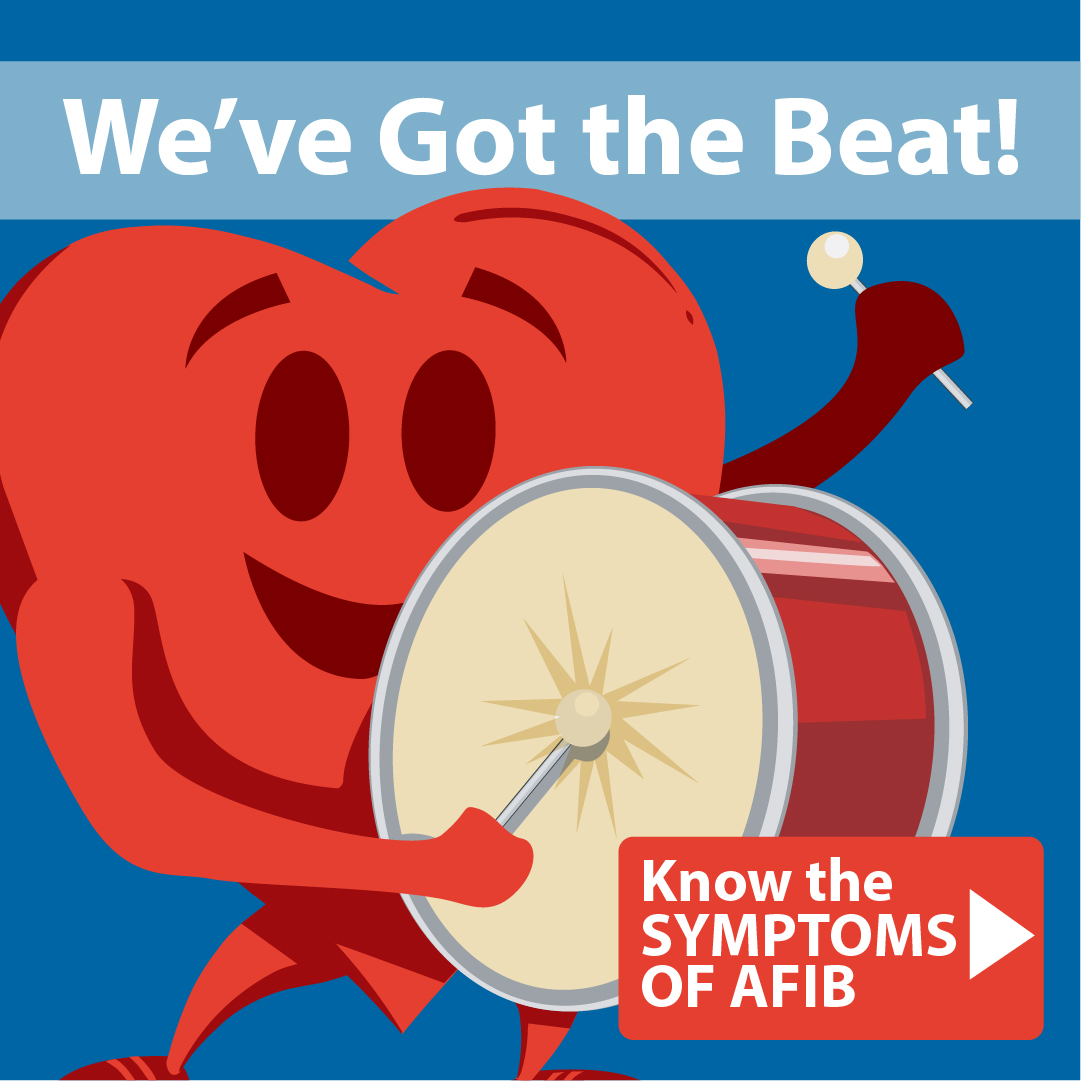John Keller, M is an Electrophysiologist who has been with Adena Cardiology for eight years. During that time, he and the Cardiology team have brought many new procedures to Adena Health System to not only help treat patients, but also give them a chance at a cure. He takes pride in advancing the cardiac treatment of patients locally so they can be cared for close to home.
The A to Z on Afib
Atrial Fibrillation, commonly called Afib or AF, occurs when the heart's upper chambers (atria) beat irregularly, out of coordination with the lower chambers (ventricles). “Afib is caused by disorganized electrical impulses in the atria,” says Dr. Keller, “ultimately, we don’t know what causes these disorganized charges, but we know that conditions such as obesity, hypertension (high blood pressure), coronary disease and sleep apnea can all lead to risk of developing Afib.”
Often patients will present no symptoms of Afib, but when symptoms do occur, they can include heart palpitations, shortness of breath and fatigue. “Forty percent of patients are asymptomatic,” explains Dr. Keller, “but having Afib can put them at risk for some dangerous things, such as a heart attack, stroke or heart failure.” The erratic heartbeats in the atria can lead to blood clots which can then move to other parts of the body, causing stroke (brain) or heart attack. This is an important reason for people to get appropriate screenings and regular check-ups. “The longer that a patient has Afib, the harder it is to get rid of,” says Dr. Keller.
Keeping You on Rhythm
If a patient shows signs of Afib during a check-up or screening, their Primary Care Provider will generally refer them to the Adena Cardiology team where specialists like Dr. Keller perform thorough case reviews to assess the patient’s risk factors for heart attack, stroke and heart failure. This helps determine the best Afib treatment plan. There are two approaches in getting a patient’s heartbeat back into regular rhythm – one, is rate control and the second, is rhythm control. “The approach we take depends on the patient’s history, age, general health and symptoms,” says Dr. Keller. “Each case is very individualistic, so we need to tailor a treatment to the complexity of the patient’s condition.”
A rate control treatment is generally a medication-based approach using blood thinners or beta blockers, while rhythm control is treated with medication, cardioversion (shock treatment), ablation or surgery (or a combination of these) with the intent to end or cure a patient’s Afib. Dr. Keller says that he’s been treating Afib patients more and more with AF ablation that uses a burning or freezing technique to create scar tissue in the atria that disrupts the erratic electrical impulses. Dr. Keller quite often uses cryoablation (freezing technique) which is a relatively fast and simple and has repeatable outcomes. Once the procedure is over, a patient usually stays in the hospital one to two days for observation. Ablation cure rates for Afib are around 70-75% says Dr. Keller, although in some cases it may take more than one Afib ablation procedure.
How Not to Clot
Not every patient is a candidate for ablation, shock therapy or surgery. In these cases, doctors often use blood thinners to help prevent clotting to reduce risk of strokes or heart attacks. When blood thinners aren’t an ideal solution due to a patient’s risk factor of blood loss through a fall or injury, Adena Cardiologists often use an advanced, minimally invasive, implantable deviceto help avert blood clots. “This implant is what’s known as a left atrial appendage occlusion device,” says Dr. Keller, “and it can be highly effective in preventing clots for patients who can’t go on blood thinners.”
We’ll Treat You Right
Dr. Keller wants patients to know that Adena Cardiology offers comprehensive Afib treatments with options for every patient – “right here where they live.” The Adena Cardiology team helps patients manage their Afib through a number of therapy options, and partners with them to help them control and often reverse atrial fibrillation. If you’ve experienced Afib symptoms, or have heart concerns, contact your Adena Primary Care Provider, Adena Cardiology at 740-779-4570 There are options for treating and even curing Afib – Adena can treat you with a comprehensive care approach close to home.
